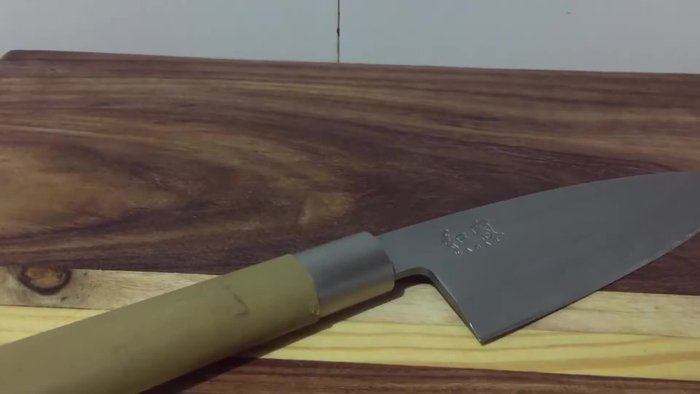This review delves into the practicalities of the KAI Wasabi deba knife, a 6-inch single-edged blade, from the perspective of a home cook with a predominantly European culinary style. While not a professional, my experience offers insights into its usability, performance, and value for money. This assessment will cover aspects such as build quality, ease of use, and overall suitability for the average home cook, considering its specialized nature. Proper knife care is essential, and if you're looking for a safe and stylish way to transport and protect your new culinary investment (or perhaps your existing collection!), be sure to check out our guide on selecting the perfect carrying case. You can find our curated list of top-rated options for keeping your knives in pristine condition here: The KAI Wasabi deba, a Japanese single-edged knife, presents an intriguing proposition for the home cook seeking to enhance their fish preparation skills. This review aims to provide an honest assessment of its performance beyond the marketing hype, analyzing its ergonomics, durability, and overall value, particularly for those who don't necessarily work with fish daily. Our experience focuses on the practicality of using this specialized knife in a non-professional setting. We also understand the importance of properly storing and transporting your precious blades; for guidance on choosing the best protective cases, consult our comprehensive guide on this topic:
Pros And Cons
- Single-edged
- Six-inch blade (12 centimeters)
- Made in Japan
- Good value for home cooks
- Unknown steel type
- Factory-made (not handmade)
- Speaker only used it once in eight to nine months
Read more: Top 10 Damascus Sushi Knives: Ultimate Guide
Initial Impressions and Background
I recently acquired the KAI Wasabi deba knife, a 6-inch single-edged blade. While I'm not a professional Japanese chef, my interest in culinary arts prompted this purchase. However, my cooking style leans more towards European cuisine. This review will focus on my experience as a home cook.

The knife's construction is a notable aspect. It's a factory-made knife, unlike many handcrafted alternatives. While I appreciate the craftsmanship of handmade knives, the price point of this KAI Wasabi made it a more practical option for my home kitchen.

Functionality and Use
The knife's single-edged design was initially intriguing, but I found it took some time to get used to. I didn't use the knife daily, primarily due to my cooking preferences. It performed decently, but the learning curve was steeper compared to my usual double-edged knives.

Despite the 6-inch blade length, the knife felt relatively manageable for everyday use. The balance was pretty good and allowed for some level of precision during certain tasks, mainly fish filleting.

It's worth noting that this knife isn't versatile enough to replace all my other kitchen knives. Its specialization makes it best suited for specific tasks and not a 'one-knife-does-it-all' solution.

Build Quality and Materials
The KAI Wasabi is made in Japan, which is indicated on the knife itself. While I am not an expert on steel types, its construction feels sturdy and the blade held its sharpness fairly well over the period of use. However, long-term durability remains to be seen.

The stainless steel material of the blade is a practical choice for home cooks, requiring less specialized maintenance than carbon steel alternatives. This is a major factor for those not using the knife every day.

As a factory-produced knife, the level of finish isn’t as refined as handmade knives. However, considering the price, it provides more than acceptable performance.
Overall Conclusion and Recommendation
The KAI Wasabi deba knife is a decent option for home cooks interested in trying a deba knife, especially if their budget is a concern. Its price point is quite reasonable compared to higher-end options. However, its single-edged nature might not be ideal for everyone.

If you're primarily focused on preparing fish and are comfortable with a single-edged blade, this knife is a worthwhile consideration. For those who prefer more versatility, or daily intensive usage, a double-edged chef's knife might be a more suitable choice.

The build quality is more than satisfactory for its price and overall, its performance aligns with its cost.
